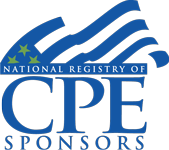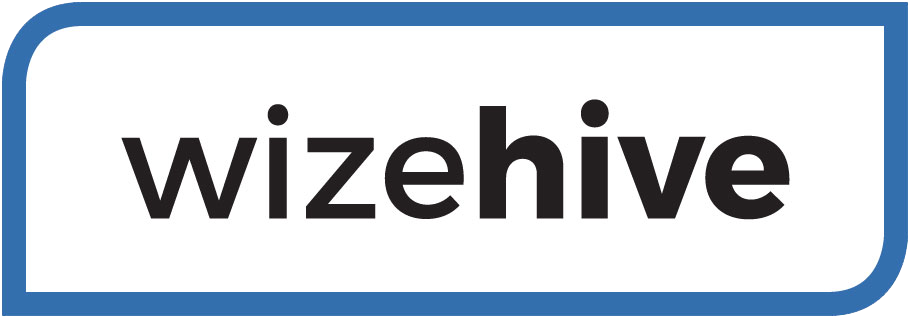 Fall Forum Agenda Course Descriptions Fall Forum Agenda Course Descriptions

2024 Virtual Fall Forum: Change and Innovation
10 a.m. - 6 p.m. ET | Tuesday, October 22
| |
2024 Virtual Fall Forum Course Descriptions
|
| |
10-11 a.m.
Change Management: What You Need to Know
Speakers: Kim Joyce and Kristen Krey, Kim Joyce & Associates
The more you know, the more you and your organization can grow. Change management is a set of ideas, strategies, and skills that can be applied to engage change effectively. Having a strategy for change benefits both individuals and organizations as they navigate through the ever-changing challenges of grants management.
Learning Objectives:
- Identify how you feel about change.
- Understanding the five C’s of change management.
- Learn about building a successful framework for a change initiative.
- Learn how to apply your general understanding of change management to influence management ideas and relationships to maximize change.
|
|
| |
11am-12 p.m.
Grants Management Safe Harbors: Strategies to Successfully Navigate
the Rapidly Changing Federal Financial Assistance Landscape
Speakers: Matt Hanson and Ariel Lybarger, Witt O’Brien’s
With the recent Uniform Guidance updates, Supreme Court Chevron ruling, Davis-Bacon Final Rule, revisions to the National Environmental Policy Act (NEPA), implementation of Build America Buy America (BABA), and so much more, the federal financial landscape is changing on almost a daily basis. As grant professionals, we need to remain engaged and flexible, but we do not need to go down every new policy rabbit hole. Regardless of the changes happening in D.C., certain industry standards and best practices have and will continue to serve as our true north as we navigate these new changes.
This session will provide an overview of the recent updates in federal regulations and their implications for grant management. We will focus on practical strategies for staying compliant without getting overwhelmed by every new policy shift. By emphasizing core industry standards and best practices, we aim to equip you with the tools and knowledge needed to confidently manage your grants amidst this evolving landscape. Join us to learn how to prioritize your efforts, maintain flexibility, and ensure your grant management processes remains focused on the programmatic purpose of the grant program and the impact being made by funded projects, regardless of regulatory changes.
Learning Objectives:
-
Overview of recent federal regulatory changes impacting grants management, including the Uniform Guidance, Chevron ruling, Davis-Bacon Final Rule, NEPA revisions, and BABA implementation.
-
Strategies for maintaining compliance without being overwhelmed by policy shifts.
-
Emphasizing core industry standards and best practices as a guiding framework.
-
Techniques for prioritizing grant management efforts to stay focused on programmatic purpose and project impact amidst regulatory changes.
|
|
| |
12:30-1:30 p.m.
Updates to OMB 2 CFR 200: Impact on Performance and Subrecipient Monitoring
Speakers: Mara Ash and Cindy Watson, BFS Strategic Partners
In the realm of grants management, ensuring the diligent monitoring of subrecipients is paramount for maintaining compliance, ensuring the proper use of funds, and achieving the intended outcomes of grant programs. However, the traditional methods of monitoring can be cumbersome, time-consuming, and prone to risks of non-compliance due to human error. This session explores innovative strategies and technologies for addressing some of the common challenges in subrecipient monitoring. It covers practical considerations, approaches, and real world case studies for leveraging artificial intelligence (AI), machine learning, and advanced data analytics to automate and optimize critical aspects of monitoring - from conducting thorough risk assessments to performing financial reviews and tracking performance metrics.
Learning Objectives:
By the end of this session, participants will be able to:
-
Summarize common challenges in subrecipient monitoring.
-
Recite leading practices for addressing common subrecipient monitoring challenges.
-
Identify opportunities to leverage emerging technology to automate aspects of subrecipient monitoring.
|
|
| |
1:30-2:30 p.m.
Innovating for Impact: Transformative Approaches to Subrecipient Monitoring
Speakers: Anthony Monaco and Samantha Sicard, KPMG LLP
In the realm of grants management, ensuring the diligent monitoring of subrecipients is paramount for maintaining compliance, ensuring the proper use of funds, and achieving the intended outcomes of grant programs. However, the traditional methods of monitoring can be cumbersome, time-consuming, and prone to risks of non-compliance due to human error. This session explores innovative strategies and technologies for addressing some of the common challenges in subrecipient monitoring. It covers practical considerations, approaches, and real world case studies for leveraging artificial intelligence (AI), machine learning, and advanced data analytics to automate and optimize critical aspects of monitoring - from conducting thorough risk assessments to performing financial reviews and tracking performance metrics.
Learning objectives:
-
Summarize common challenges in subrecipient monitoring.
-
Recite leading practices for addressing common subrecipient monitoring challenges.
-
Identify opportunities to leverage emerging technology to automate aspects of subrecipient monitoring.
|
|
| |
2:45-3:45 p.m.
Practical Uses of Generative AI You Can (and Should) Start Employing TODAY!
Speakers: John Manilla, Crowe LLP and Andrea Sampanis, HHS QSMO
Generative AI is evolving quickly and there is a vast amount of information and content across the internet on the subject. The purpose of this session is to simplify the current state of the technology via illustrative examples of ways you can (and should!) begin using generative AI to enhance some of your everyday tasks. We’ll explore some basic use cases as well as some more sophisticated ways to extract value out of generative AI leveraging the concept of “chain of thought” prompting.
Learning objectives:
-
Understand Generative AI concepts: Participants will gain a foundational understanding of generative AI technologies.
-
Identify immediate applications: Participants will learn to identify and evaluate practical and immediate applications of generative AI via live demonstrations of general use cases that are broadly applicable.
-
How to get started with AI: Participants will be equipped with the considerations to take back to their organizations to implement AI tools that are available today.
|
|
| |
3:45-4:45 p.m.
Prepare for the Future: Navigating Legacy Processes to Modernize Grantmaking Technology
Speakers: Muhammad Siddiqui, Fluxx
As the landscape of grants management continues to evolve for funders, staying ahead of the curve requires technology modernization. This session will explore how grantmaking agencies can move beyond simply adopting new technology tools to assessing when to translate legacy processes into the technology versus reimaging them to maximize efficiency, compliance, and impact. Drawing insights from recent federal funding initiatives and technology implementation use cases, participants will learn how to prepare for changes to the technology and systems necessary to manage the grants lifecycle as a grantor.
By the end of this session, participants will be able to:
-
Identify common challenges agencies face when implementing grants technology
-
Understand key criteria to plan for modernizing grants management software
-
Cite example use cases for reimaging legacy process with new technologies
Join us to learn and discover best practices for transforming your grants management operations to meet the demands of a dynamic and complex funding environment.
|
|
| |

|
National Grants Management Association is registered with the National Association of State Boards of Accountancy (NASBA) as a sponsor of continuing professional education on the National Registry of CPE Sponsors. State Boards of Accountancy have the final authority on the acceptance of individual course for CPE credit. Complaints regarding registered sponsors may be submitted to the National Registry of CPE Sponsors through its website: www.nasbaregistry.org.
|
|

 Fall Forum Agenda Course Descriptions
Fall Forum Agenda Course Descriptions


